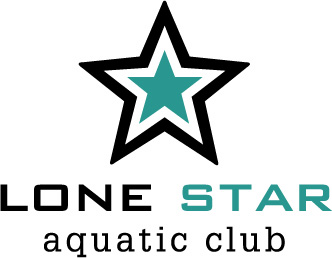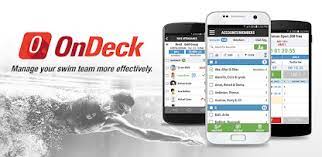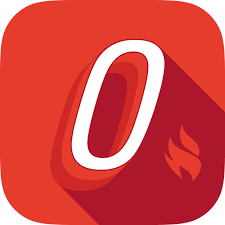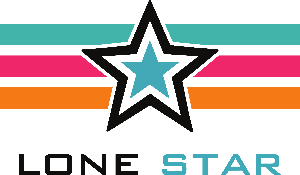Long Course 2023 Information

We hope this email finds you happy, healthy and ready for an outstanding summer with the raddest team on the planet! Although our team information has been on the website for your viewing pleasure for some time now, we wanted to reach out to both welcome and remind everyone about the pertinent information you need to have the best summer possible.
I’m fully aware this is a long email…but we want to make sure you have the info you need so you can always go back to this message. It will stay posted on the website under the “NEWS” section so you don’t have to go deep into your email to find it.
The 2023 Long Course season is off to a blistering pace.
Championship cuts are already piling up as team records continue to go down. It’s going to be a blast of a season and we are thrilled you are a part of it! Let’s roll!
What is LSAC?
LSAC is a competitive swim team. We embrace the spirit of competition at swim meets and practice. Competition, done right, builds everyone up and encourages practice techniques. We are seasoned, lethal, cunning, and steadfast team. We embrace competition and the benefits that come with holding each other accountable.
Our athletes are passionate about swimming fast and greatly possess the mental fortitude to overcome any obstacle that comes our way.
Our Mission is to provide the highest quality level of training for all levels of competitive swimming while promoting positive habits through teamwork and respect in a safe and supportive environment.
Our Vision is to develop swimmers who consistently move on to compete at the collegiate and international level.
Core Values: Integrity, Respect, Excellence
Swim Meets
While this is a competitive swimming experience, it is not required, but is ABSOLUTELY AND UNCONDITIONALLY ENCOURAGED that all swimmers compete in meets. SWIM MEETS ARE A BLAST!!! We hope that you plan to join us for some if not all of the meets as we take on some of the best this year.
Upcoming Meets:
We dedicate the month of June to training and conditioning as athletes prepare their body’s for competition. For more information on HOW we train, please check out our training section here.
Listed below are our upcoming meets. You may find more information including sign-up info on the meet information page on our web site here.
June 9-11th - Texas Open
June 17-18th - 12 and Under Swim meet at UT
June 23-25th - Summer Splash at Austin Swim Club
June 30th - Tropicana at YMCA (Home Meet) - This is our Senior send off meet. Please bring a gift (preferably a gift card) to give to one or all three of our graduating Seniors.

June 4th - No Practice
Championship Meets:
During the championship season, athletes prime their bodies for top level performance. While June meets are more“practice” meets, meets in July/August are seen as "Championship" meets. Meets during the championship season have greater value. These meets require qualifying times and are not easy to acheive for by any means.
When you go to sign-up, our system will let you know if your athlete is qualified. You may also view qualifying times on the time standards section of our web site.
July 8-11th - Sectionals at UT
Qualified: Ella Bingham
Jul 8th - Jul 9th: STX Champs at Corpus Christi (Practice ends at 630pm Friday, July 7th)
Qualified: Several athletes
July 14th - No Practice
Jul 14-16th - STAGS at San Antonio (Practice ends at 6pm Friday, 14th)
Qualified: Several athletes
Jul 22-23 - B Champs at San Antonio
Qualified: Several athletes
July 28th - No Practice
Jul 26-30th - TAGS
Qualified: Savanna Guidry, Mathew Morales, Josie Lee
August 11th - Crystal Lake Invitational (HOME MEET NO CHAMPIONSHIP QUALIFYING TIMES)
Signing Up for Meets:
All meet sign-ups will be on the LSAC website. Each family has their own “Team Unify” account, with each athlete having their own member account within the family account. In order to enter the meet, all swimmers and families will need to do so before the deadline to guarantee entry into the meet.
When a meet opens, you will receive an email with details regarding that meet. For more information on what you need to know, please follow the "Things to Know" section here.
Team App: On Deck


Announcements, meet sign-ups, accounting, videos, etc. can all be found on our team app.
Team Gear
Official Gear:
Official team gear can be ordered on our site here. Use the team code: LSAC25 to receive an additional 25% off your online purchases.
Fins and Paddles:
The best paddles and fins can be purchase through DMC. All athletes are encouraged to own a pair of DMC Elite II fins and DMC paddles. Both items will last significantly longer than any other swim product.
Please use referral link: https://dmcfins.com/?ref=QKS-5PYnij-pa
Custom Gear:
From time to time we set-up a “Team Loyal” shirt that embraces our team culture and what we are all about. We have a new Team Loyal shirt that can be ordered online. Take a good look at the pattern in the background.
Custom Team Shorts:
Campeche Collective has a page set-up for us with additional team swag. Fiesta flavored shorts for guys and girls can be found here.
Group Updates
We have several new swimmers coming in for Junior I and a few spots opening up for Junior II this month. Please welcome these new athletes as they join our team.
For athletes moving up in groups. Advancing may raise concerns with having additional commitment and physical challenges. In most cases, the key points are very much the same. There are things worth considering while making the move.
Considerations
1. The gap isn’t as big as you think Some of the most common worries that come with making the step up to a faster group are the fears of being completely out of your depth, getting annihilated by the faster swimmers and generally getting caught in the back of the pack.
Think about this the strongest swimmers in your current group would make it as the slowest in the group above, so technically, there is little to no gap!
2. Our staff will do our best to keep each athlete with swimmers their age. This is crucial for healthy development. We may place you with someone with a “little more experience” so that you have someone who can help guide you. However, it’s best that you improve with teammates who are experiencing growth at the same rate as you are.
3. Advancing is the name of the game. You can’t move forward looking back or sitting complacent. We want to grow as much as you can within your group but sooner or latter you are going to have to move forward in groups. This is where real growth happens - outside of your comfort zone.
Benefits of Moving Up
Similar pace to you means more room for you to grow. If you have gotten to the stage where you are constantly getting caught in traffic in your current group, moving up will give you some much needed space to get into your stride and string together some clean and consistent laps. You can also start to think more about your form as you sharpen your craft.
More Information about Group Assignments and Advancement can he found here: Advancement.
Junior Dive Clinics
Off the block is when the swimmer is at their fastest. Once you are in the water, it is a race to see who can best hold the momentum. Want to get out in front? Get on your dive! Every Monday we will have equipment set up at the pool to help the Junior athlete develop his or her dive.
Please be sure to sign-up as soon as you can. Classes are almost full. If you have requested access then you should have it now.
Private Lessons
If you are interested in private lessons (strength training, swim technique, underwater filming, etc.) pease contact myself as soon as you are able to. Remember a donation of $150 to the team gets you three free lessons.
Volunteering
One thing every parent can count on when joining our team is that WE NEED YOUR HELP!! Our home meets will be amazing for the kids, but not without your help. Outside of the coaching staff, every single position at a swim meet and on the team is purely volunteer. And there are tons of positions out there that require no training or previous knowledge whatsoever!
Our goal is to be so deep in volunteers that no single family ever feels like they are doing all the work. Plus, as you will see based on the sign-up genius, it takes a village!
If you are interested in volunteering, please contact a Board member. Many of our Board members are officials and stroke judges. If you would like to know more, please email the Board at [email protected]
If you choose to help...on behalf of the coaches and swimmers, THANK YOU!!! Without you, this wouldn't become the most amazing swim summer ever!
Nutrition for Athletes
The basic nutrients are carbohydrates, proteins, fats, vitamins, minerals and water.
Carbohydrates are the primary fuel source for aerobic athletes and, contrary to popular opinion, are not fattening. If taken in reasonable amounts, carbohydrates are used for energy, leaving little to be converted to body fat.
Protein builds and repairs muscle, produces hormones, supports the immune system, and replaces red blood cells. Protein is not a main source of energy except in cases of malnutrition or starvation. Most athletes do not need extra protein. They get adequate protein from a normal diet. Again, contrary to popular opinion, protein does not build muscle bulk; only exercise does that.
Fats are essential for hormone production, storage of vitamins, and delivery of essential fatty acids. The body needs fat, but the average American diet contains more than enough. High fat foods should be traded for low fat substitutes so that fat intake is limited to 25% of total calories.
The necessary vitamins and minerals are also readily available in the foods consumed in a healthy diet. Vitamins, minerals, and water make the body more efficient at accessing carbohydrates, fats, and proteins when they are needed during exercise and recovery. In terms of total calories, swimmers should aim for a diet of:
60% carbohydrate
15% protein
25% fat
Of course, this will vary, but carbohydrate intake shouldn’t drop below 50%, protein should not go above 25%, and fat should not go above 30%.
There are no magic foods and no magic food groups! Extra vitamins, minerals, and supplements are not necessary in a healthy diet. The easy guidelines for your athletes are as follows:
Eat colorful foods. The more naturally colorful, the more vitamins, minerals, antioxidants, and carbohydrates are available for recovery and general health.
Eat early and often. The first two hours post-workout are the most critical.
Hydration
Proper hydration is critical to both health and athletic performance. Every day we lose water due to basic life processes such as respiration and gastrointestinal functions. As an athlete, one the biggest sources of our daily water loss is sweat and yes, you do sweat in the pool!
**ON AVERAGE THE METABOLIC PROCESSES IN THE BODY ARE ONLY ABOUT 20% EFFICIENT. WHICH MEANS THAT 80% OF THE ENERGY WE PRODUCE IS LOST IN THE FORM OF HEAT. THIS HEAT HAS TO GO SOMEWHERE IN ORDER TO MAINTAIN BODY TEMPERATURE, AND THE BEST WAY TO LOSE IT IS TO SWEAT**
A MODEST 3% LEVEL OF DEHYDRATION CAUSES A MUSCLE TO LOSE 10% OF ITS CONTRACTILE STRENGTH AND 8% OF ITS SPEED.
SCIENTIFIC, PEER-REVIEWED TESTS OF ATHLETES SUFFERING 5% DEHYDRATION SHOW UP TO A 30% DECLINE IN STANDARD PERFORMANCE, AND THESE RESULTS WERE MEASURED DURING EVENTS LASTING 35 MINUTES OR LESS.
DEHYDRATION REDUCES BLOOD VOLUME AND INCREASES THE VISCOSITY OF THE BLOOD. SEVERAL PROBLEMS ENSUE:
• DECREASED FLOW OF OXYGEN (VIA RED BLOOD CELLS) AND NUTRIENTS TO THE MUSCLES
• DECREASED EFFICIENCY IN REMOVAL OF CO2 AND ACID BY THE BLOOD
• DECREASED AEROBIC EFFICIENCY
• IMPAIRED CIRCULATION TO THE EXTREMITIES THAT COULD RESULT IN COLD-RELATED INJURIES
• INCREASED HEART RATE
• LOSS OF STRENGTH AND SPEED
• SYMPTOMS OF DEHYDRATION INCLUDE MUSCLE CRAMPING (MAY ALSO BE DUE TO SODIUM DEFICIENCY), EXCESSIVE FATIGUE, AND SHORTNESS OF BREATH
Our Recommendations: DRINK 2 GLASSES OF WATER AS SOON AS YOU WAKE UP
• DRINK BEFORE AND DURING PRACTICE
• IF YOU ARE THIRSTY, YOU WAITED TOO LONG
• KEEP A BOTTLE BY YOUR LANE AT ALL TIMES
• FLUID TEMPERATURE BETWEEN 59-72 ̊F OPTIMIZES PALATABILITY AND ABSORPTION
• THE FLUID SHOULD BE COMPOSED OF A 4-8% CARBOHYDRATE CONCENTRATION
• CARBOHYDRATES SHOULD BE INGESTED AT A RATE OF 30-60G PER HOUR, WHICH CORRESPONDS TO THE ABOVE RECOMMENDATIONS FOR OVERALL INTAKE AND COMPOSITION
• CALCIUM, MAGNESIUM AND POTASSIUM MAY ALSO BE PRESENT AND ARE BENEFICIAL ELECTROLYTES (IF THESE ARE NOT PROVIDED IN THE DRINK THEY SHOULD BE SUPPLEMENTED)
Performance Partnership
It takes three people to swim fast:
1. A talented, committed, hardworking and dedicated swimmer.
2. A passionate, experienced, innovative, engaging and enthusiastic coach.
3. A supportive, loving, caring and believing parent.
These three people – these “partners” - each play an important role in helping the swimmer to achieve swimming performance success.
As partners in the swimmer’s performance, each person – the swimmer, the coach and the parent has a role to play and a clear set of responsibilities to ensure they perform their role to the best of their ability. The Key to a well-balanced partnership: Understanding each other’s role.
The Swimmer’s Role
Swimmers must take ownership over their performance. They are the one’s doing the work, setting personal goals, etc. The actual performance is largely the result of the talent, commitment, passion, drive and determination of the swimmer.
The Coach’s Role
Coaches foster motivation through constant feedback in regards to goals while empowering the athlete to make better decisions. All of our coaches love the sport of swimming. Swimming fast is fun and we want to share that with the swimmer. But this is secondary to developing them as a person.
Coaches serve the athlete not only as a positive influence, but as an enabler as well.
Our role is to guide the swimmer by providing structure, feedback, education and support. We do this by mentally stimulating the athlete and encouraging them to be creative in finding a way to reach their goal.
Most of all, it is our job as coaches is to keep communication with swimmers as black as white as possible. Sugarcoat nothing. Integrity has not no need of rules. A coach will do what is right because it is right. It is not our job to conform to anyone else standard of behavior. It is our job to be as honest with our kids as possible.
In doing so, build an honest relationship with our swimmers while allowing them to take the reigns of their own swimming destiny. We inspirethe athlete to push beyond their boundaries.
The Parent’s Role
I’ve known many parents who share the same goal – to provide a healthy opportunity for their child to grow. This goal can only be achieved through trust in each other. Trust isn’t something that is given. Trust is something that has to be developed through continual communication and a firm understanding in each other’s role and cohesive cooperation in supporting each other’s role.
A swimming parent is responsible for helping their child to develop values like integrity, humility, respect, courage, discipline, and excellence. A swimming parent can help a child develop time management skills as well as independence. A swimming parent can teach an athlete to be more responsible for their own behavior.
Parents must understand that no two kids are the same. All kids respond, react and develop differently. Comparison is the thievery of joy. Never compare your kid to another under any circumstance.
Instead let the coach do their job and give your kid their independence. This will allow them to develop self-management skills and allow them to prepare for life.
Parent Expectations:
1. All parents will engage in positive fan behavior. This includes volunteering to time at meets and serving on the board.
2. Parents must never interfere with training sessions. This creates a liability issue with our team and USA swimming.
3. Let coaches’ coach
4. Let officials officiate the meet
5. Never compare your athlete to another.
6. Coaches and athletes set performance goals, when appropriate needed. NEVER SET PERFORMANCE GOALS WITH YOUR SWIMMER.
7. Be a fan, not a FANATIC
8. What happens on the pool deck, stays on the pool deck.
Most of all, to be a great swimming parent, love your child unconditionally, give them all the love, care and support that you can and leave the coaching to the coaches.
- Teach them to be honest and to take responsibility for their actions.
- Teach them to be sincere and respectful to their coach.
- Teach them about perseverance. Winning means never giving up.
- Teach them to never compromise on their goals.
If you do your job really well as a swimming parent, and the athlete does their job (i.e. that they try to do their best every day and in everything they do) as an athlete, and the coach does their job, the three of you together are capable of doing amazing things.



